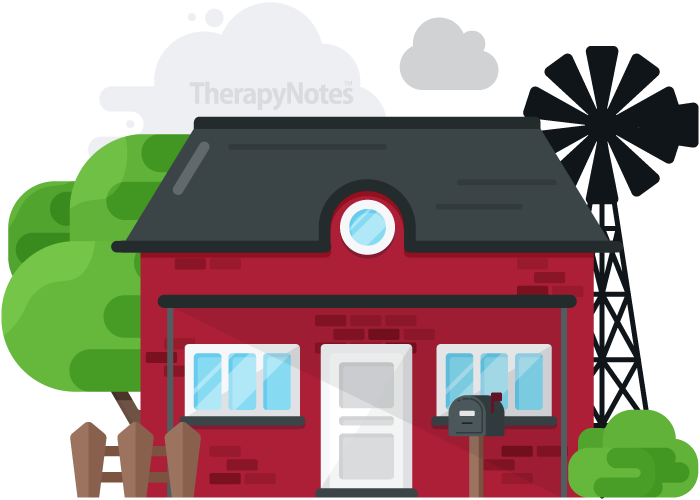Networking as a Therapist: If, Why, and How
By Allison Puryear, LCSW, CEDS on October 9, 2019

When I bring up the topic of networking events, the responses that I get are sometimes cringe-worthy. Just the idea of being in a group of people and trying to “network” makes people react as if they just drank a glass full of spoiled milk—not everyone, but most people. Me? I think, “Mmmm, free food.”
If (Should You Network?)
Let’s start with IF you should go to a networking event. For those of you who are extremely introverted or who experience significant social anxiety, ninety percent of the time, the answer is “absolutely not.” That’s it. Y’all don’t have to read anymore. Have a great rest of your day!
For the ambiverts (extroverts who fall between slightly-anxious and life-of-the-party), there can be utility in well-selected networking events.
These might be therapist meet-ups, a get-together hosted by a nonprofit related to your niche, or a treatment center dinner. Some Continuing Education events in my city include networking before or after, so all you have to do is arrive a little early or stay a little later, and you already have a common topic to talk about: the subject of the presentation.
I don’t recommend Chamber of Commerce, Business Network International, or other large, non-specific networking events. You are far more likely to refer to the plumber you meet there than the plumber is to refer to you. Why? Because we’re still more comfortable as a society talking about and recommending someone who can help you with raw sewage than talking about or recommending someone who can help you with depression.
Why (What’s the Point of Networking?)
The reason I encourage networking events for some of us is because it can introduce us to other relevant people in our industry. Through networking events, I’ve been invited to serve on two different Boards of Directors. These experiences were incredibly valuable to me professionally, and personally, they allowed me to give back to my community. Furthermore, they allowed me to strategically position myself as an expert in my niche field, which yielded more referrals and more leads.
Networking gives us the opportunity to have conversations with people we don’t know and haven’t heard of. This could be a person you end up trusting with ALL your couples’ referrals as well as someone who trusts you with all of your niche-specific referrals. Maybe they’re there because they have the same niche as you. Awesome! One of you will get full first, and you’ll both have someone to trust to send clients to. Knowing your colleagues in private practice is vital to not taking on more than you can manage in your practice. And most importantly, referring your clients to other highly-regarded professionals allows you to ensure that the people of your community find the very best care.
Networking also allows us to reconnect with the people we’ve met before. You know that relief of seeing someone you know at networking events? That feeling is palpable and goes both ways, and it can beef up intimacy in that relationship (in appropriate ways...calm down, tiger!).
How (What Should I Do at Networking Events?)
I can’t tell you how to not make networking events awkward—they just inherently are most of the time. But I can tell you how to make that awkwardness work for you. Save people from being alone. See that guy in the corner who looks like he’d rather be anywhere but here? Walk up to him and say “Hi, I’m [your name]. I’m a therapist working with [your niche] in [your neighborhood].”
That’s it. He’ll likely respond, and since you’re good at listening and integrating information, you’ll probably ask for a follow-up conversation. People will hover awkwardly around you. Invite them in with a quick “Hi, I’m [your name]. This is [other person’s name].”
If you take the role of being the meeter, it saves you from anxiously hoping that others will introduce themselves to you. It gives you something to do. I know my anxiety very much appreciates having something to do besides pretending that I have a very important text coming in.
There’s the Cliff’s Notes for if, why, and how to do networking events. I hope you find them helpful!
* The content of this post is intended to serve as general advice and information. It is not to be taken as legal advice and may not account for all rules and regulations in every jurisdiction. For legal advice, please contact an attorney.
About Allison Puryear, LCSW, CEDS
Get more content like this, delivered right to your inbox. Subscribe to our newsletter.
More Content You'll Enjoy

How to Have a Successful Rural Counseling Practice

Fighting Loneliness in Private Practice With Consultation Groups
